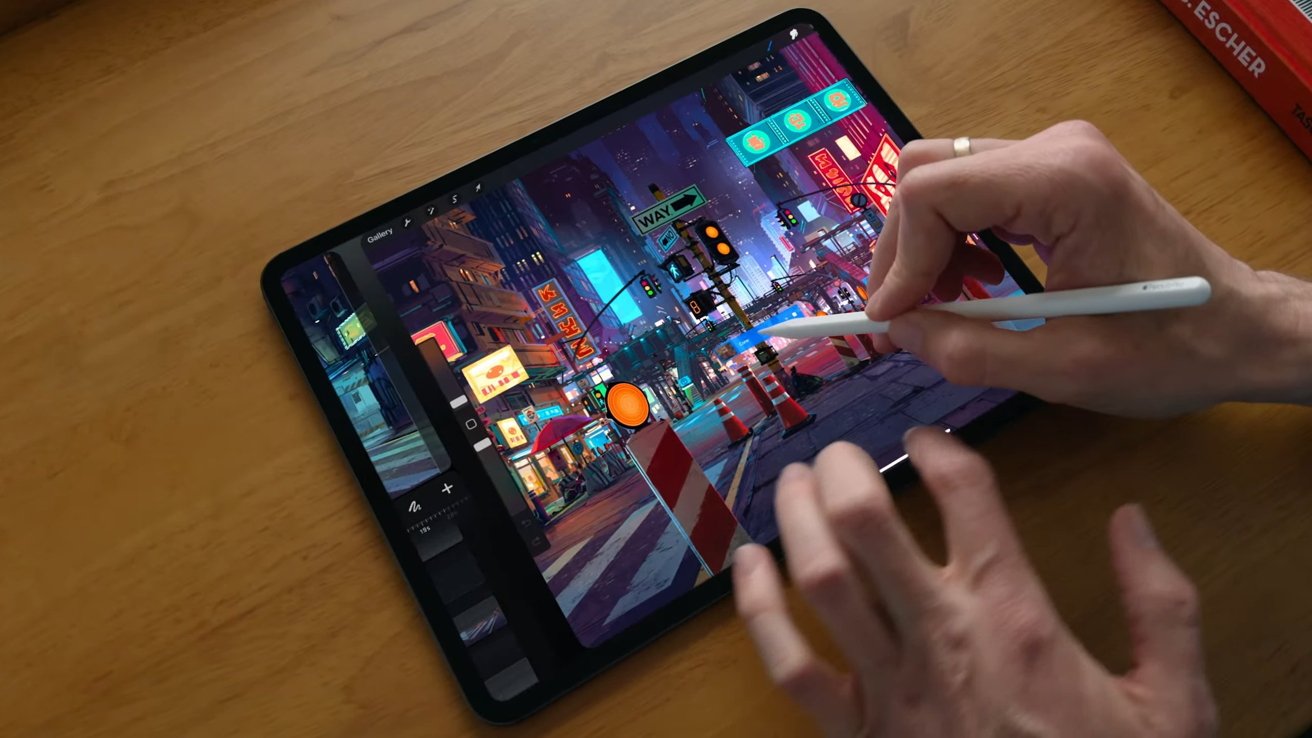Lower than expected sales of the latest iPad Pro have reportedly left production lines under-used, with LG Display planning to repurpose them for the iPhone.

Apple's ultra-thin OLED iPad Pro fails to spark sales surge
As well-received as the 2024 iPad Pro and its OLED screen was, it failed to spark as many buyers to upgrade as expected. Now a new report says that the low demand, and little prospect of it increasing, has prompted LG Display to change from iPad Pro to iPhone screens.
According to The Elec, despite switching from one size OLED screen to another, the repurposing of the production line is a major endeavor. The work will cost an estimated $1.4 billion.
Making the iPad Pro screen production line originally cost the company $2.3 billion. Despite the extra new investment, the result is said to be that LG Display will save money, as well as increase its iPhone screen production.
LG Display already has three iPhone screen production lines. Switching the iPad Pro line over to the iPhone would allow it to produce 15,000 more screens per month.
As well as the size difference, the iPhone and iPad Pro screens require several different processes. The iPad Pro, for instance, uses a two-tandem OLED panel instead of one, and also uses a glass substrate while the iPhone utilizes a polyimide one.
Making the iPhone display reportedly entails different equipment to produce the touch screen. There are other differences that are sufficient that LG Display must get approval from Apple.
It's possible that LG Display is actually aiming to create a production line that will be able to switch between the two screens. Even so, it's thought the company has an inventory of iPad Pro screens and so will presumably switch to the iPhone as soon as possible.
The OLED screen was one of the key selling points of the 2024 iPad Pro, along with its M4 processor, and a dramatically thinner design. The iPad Pro used to also be the sole iPad with a larger, 12.9-inch screen, but the slower and cheaper iPad Air now has that as an option.
So it's likely that the iPad Air has taken some of the iPad Pro's market, despite having only an M2 processor. Nonetheless, the iPad remains Apple's second biggest device despite its long term sales decline.
